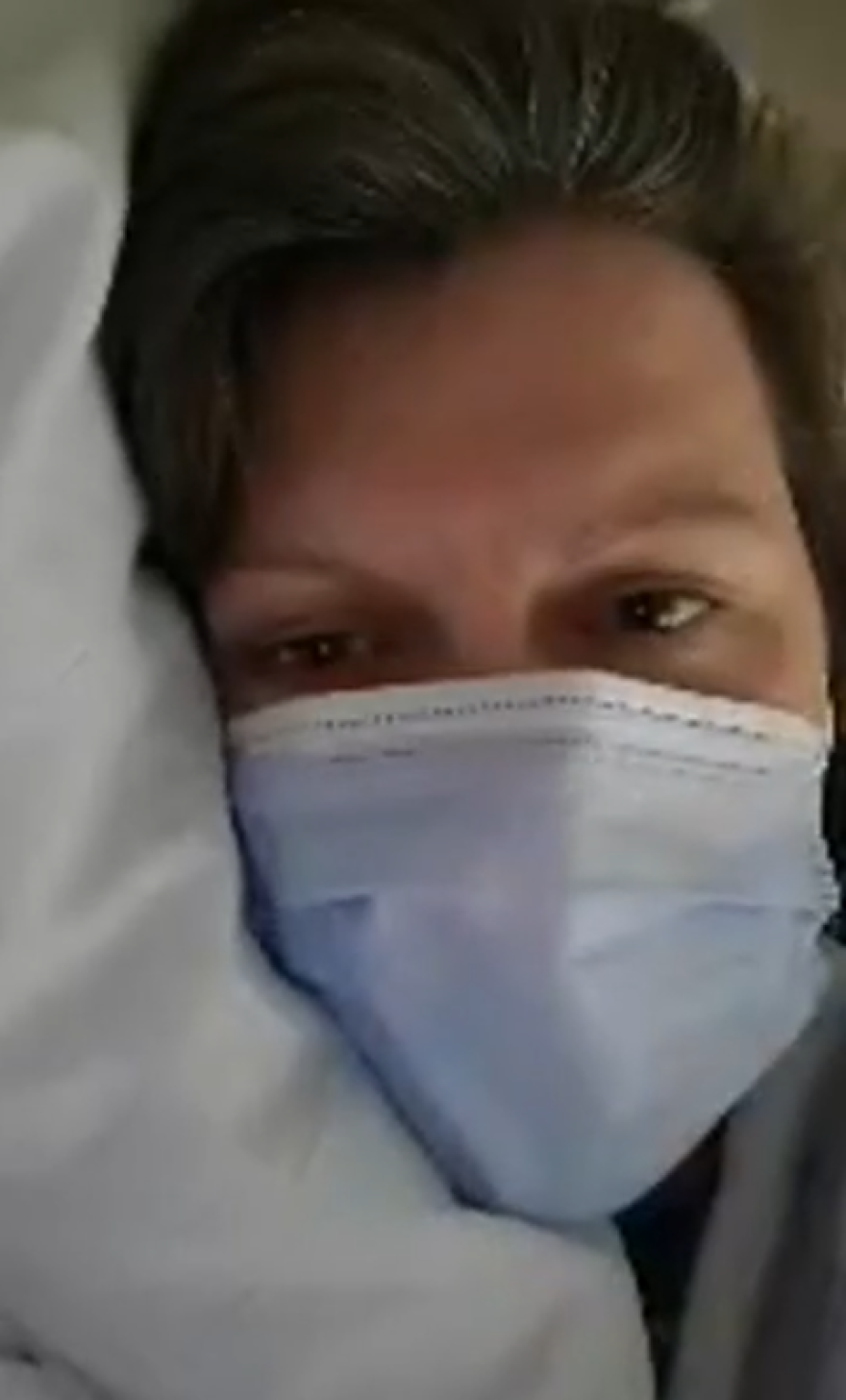A dry cough, shortness of breath, a fever: These are the most well-known symptoms of COVID-19.
But for some people who test positive, that’s just the beginning of what can be a life-changing ordeal.
NHPR’s Jason Moon reports on two families whose battle with the virus will stay with them long after the initial symptoms are gone.
Family Disruptions
Dawn Paine said the coronavirus made her as sick as she’s ever been in her life. She had trouble breathing, a high fever, and extreme fatigue.
“I didn’t want to sleep some nights because I was nervous about waking up the next morning,” said Dawn, who's in her 40’s and otherwise healthy. “Or was I going to stop breathing? I guess I didn’t know.”
But to hear Dawn tell it, that wasn’t the hardest part. It was the way the virus disrupted her family’s relationship that hurt even worse -- like her connection with her only daughter.
Sign up for our email newsletter for more news about coronavirus in N.H.
“In the course of this whole thing and finding out that I was positive, our daughter had told us some good news that she was having a baby,” said Dawn. “And then she miscarried.”
Because of her positive COVID-19 diagnosis, Dawn couldn’t go with her daughter to the hospital. She couldn’t be there for her when she got home.
“We’re very close, so it’s just been so hard to not hug her,” said Dawn. “This is what this is doing -- you can’t be there for somebody when they need you the most.”
For Dawn, it felt like the virus wasn’t just making her sick but it was stealing life’s important moments.
This didn’t just happen to Dawn. Her husband, Brandon, never developed any COVID-19 symptoms, but he did test positive. And that meant he wasn’t allowed to visit his father who was in hospice care, dying of complications from a cancer treatment.
Brandon was caught in a race between the virus working its way through his system and his father’s ailing health. He hoped he could test negative before it was too late.
In the meantime, the best he could do was to suit up in head-to-toe PPE and look at his dying father through a window.
“It’s so difficult to not be able to do anything, to not be a part of what’s going on,” said Brandon in a video he made just after his visit.
A few days later, Brandon finally tested negative. He said the hospice agency allowed him inside, but only if he wore a mask and stayed six feet away from his dad.
“And once I got in there I sat there and I watched my dad, and laws and rules and regulations just went out the window, cause I really didn’t care anymore,” said Brandon. “I took my mask off and I gave my father a hug, and I more or less said my goodbyes at that point.”
Brandon’s father, Nelson Paine, died on May 17th.
“Talking through a door is not the same,” said Brandon. “A touch from somebody means so much more than words.”
More than the physical symptoms, the Paines will remember how the coronavirus sidelined them from their own lives, how it warped their ability to comfort a daughter and to grieve for a father.
Unexpected Symptoms
COVID-19 is also leaving a lifelong mark on Darlene Gildersleeve.
For her, it began in late March when the virus swept through her Hopkinton household. Her husband lost his sense of taste, two of her three kids developed fevers.

Her own case was so bad, she was bedridden for two weeks. But for Gildersleeve, who is in her 40’s and otherwise healthy, the virus didn’t stop there.
“Very suddenly on April 23, I got complete right-sided numbness in my arm and my hand, my leg and my foot,” said Gildersleeve.
Gildersleeve said her speech slowed and she had trouble finding words.
It took multiple trips to the emergency room to finally figure out what was going on.
“The neurologist saw the MRI and said, ‘You have had two strokes, one on each side of your brain,’ ” recounted Gildersleeve. “And I’m 43 years old. And he said this is happening in your age group with [COVID-19].”
Evidence is emerging that COVID-19 can cause serious blood clotting in some younger, otherwise healthy patients. In some patients, a stroke was the first and only symptom of a coronavirus infection.
Gildersleeve now faces an intensive, months-long recovery from her strokes. Each week she’s visited at home by a nurse, a physical therapist, an occupational therapist, and a speech therapist. She’s working hard to get her strength and words back.
“It may take six months, it may take a year, it may take longer," she said. "But I’m lucky that I can still walk and talk and eat.”
For both the Paines and the Gildersleeves, on paper their ordeal with the coronavirus is over. The virus itself has come and gone from their homes. But both families will live with its impacts for a long time to come.
This story is free...but it wasn't free to make. Support NHPR's reporting - become a member today.








